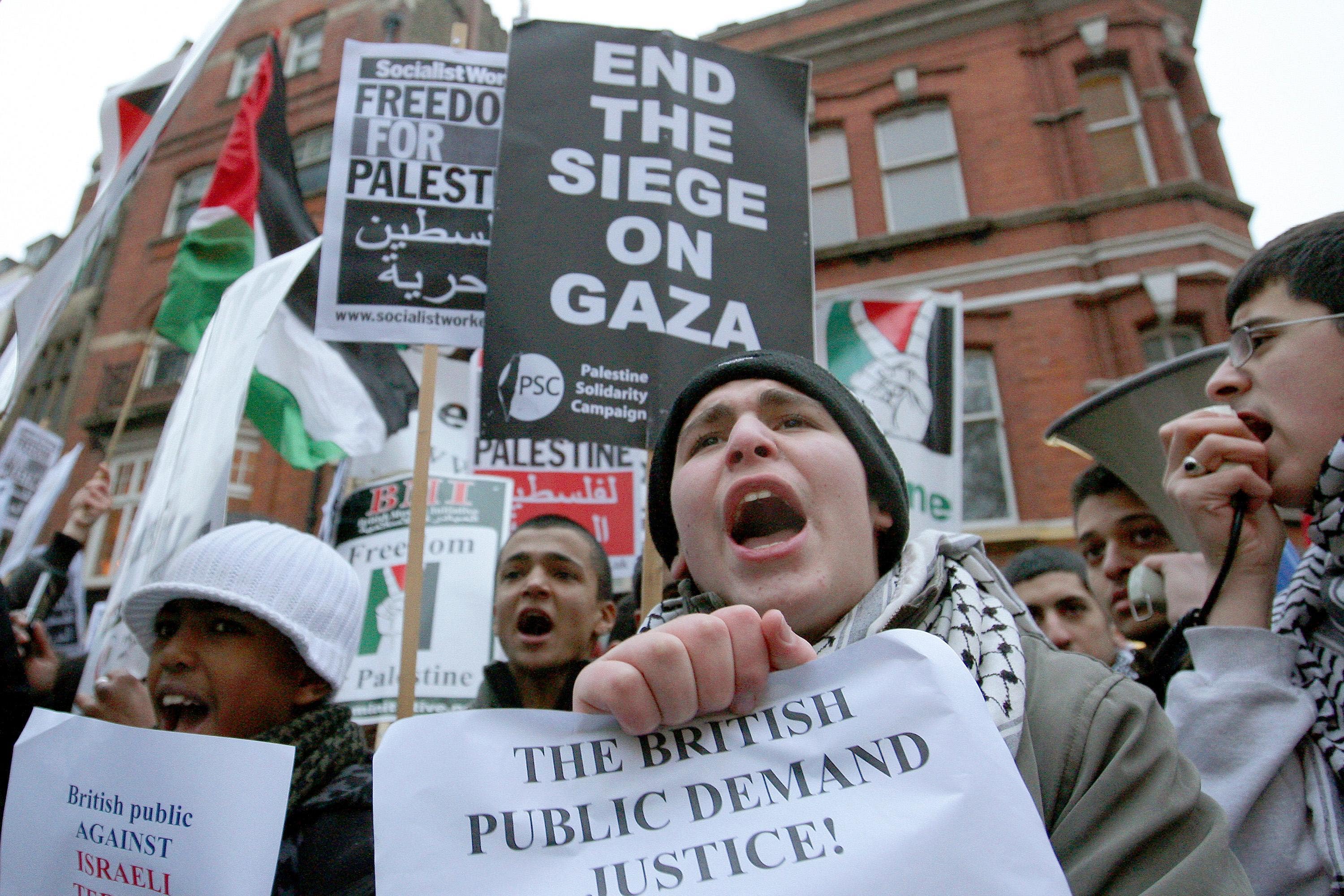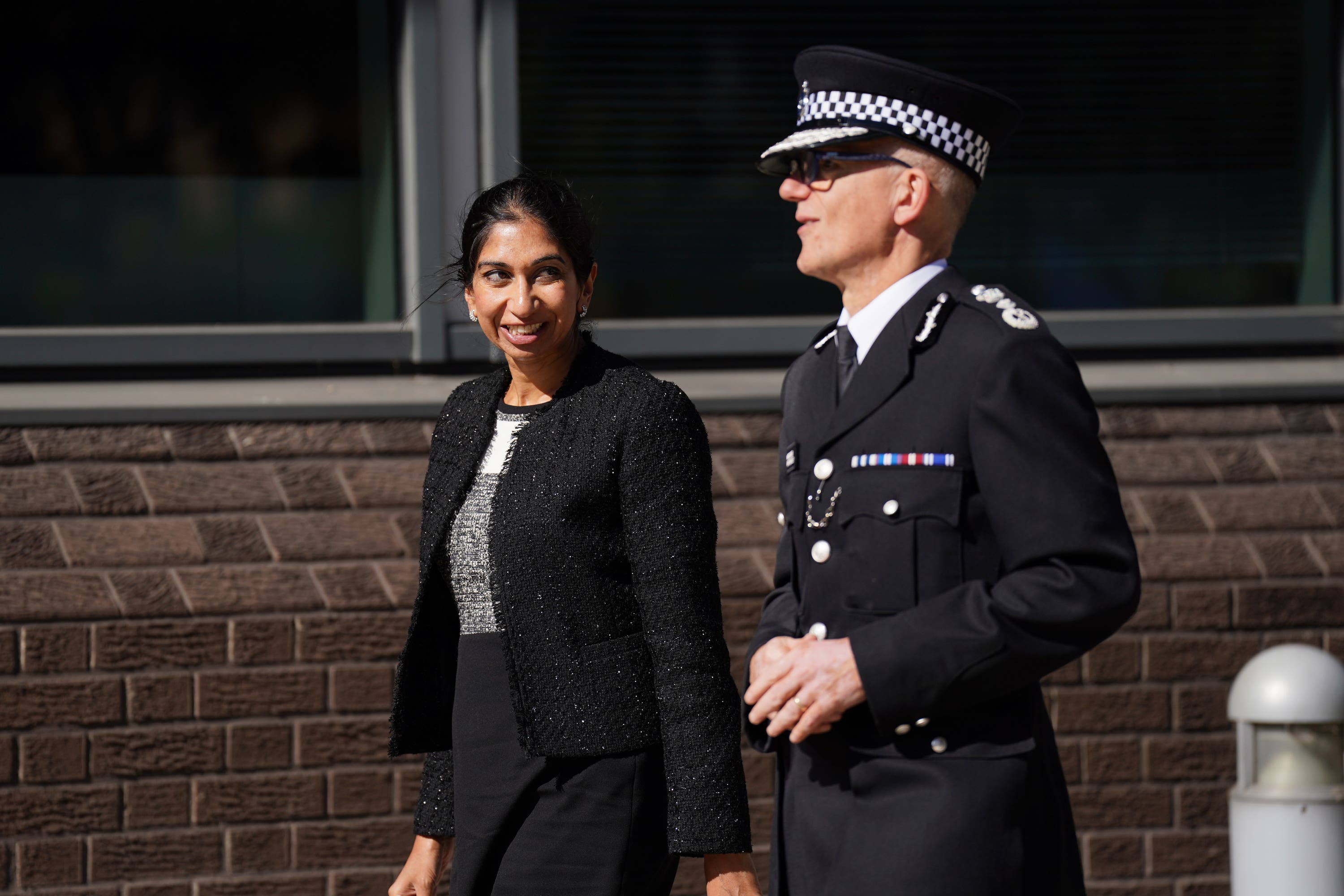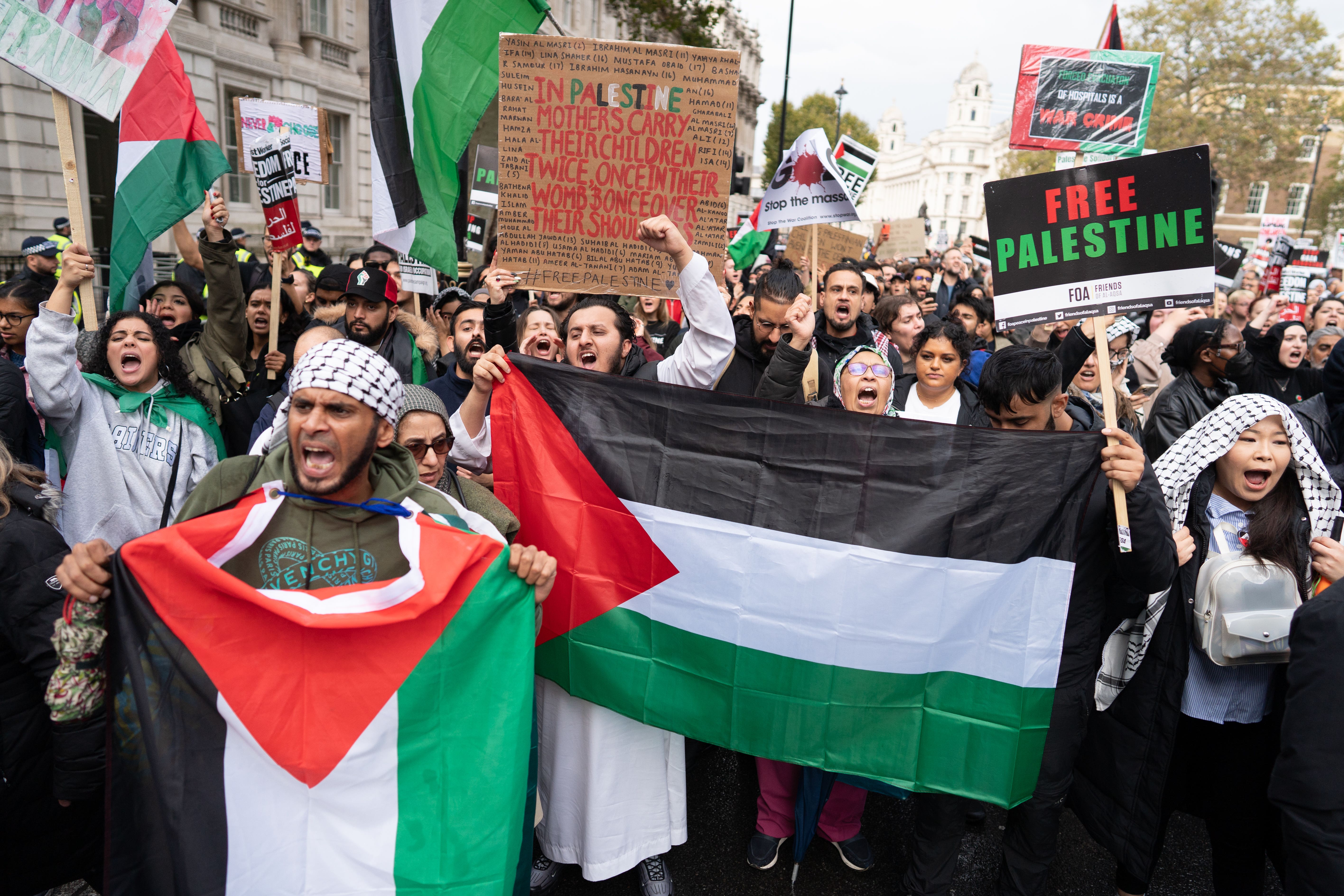Met boss calls for tougher terror powers after Braverman challenged him over ‘jihad’ chants
Lines around extremism and protest ‘probably need redrawing’, says Sir Mark Rowley – but No 10 says no plans for changes
Your support helps us to tell the story
From reproductive rights to climate change to Big Tech, The Independent is on the ground when the story is developing. Whether it's investigating the financials of Elon Musk's pro-Trump PAC or producing our latest documentary, 'The A Word', which shines a light on the American women fighting for reproductive rights, we know how important it is to parse out the facts from the messaging.
At such a critical moment in US history, we need reporters on the ground. Your donation allows us to keep sending journalists to speak to both sides of the story.
The Independent is trusted by Americans across the entire political spectrum. And unlike many other quality news outlets, we choose not to lock Americans out of our reporting and analysis with paywalls. We believe quality journalism should be available to everyone, paid for by those who can afford it.
Your support makes all the difference.Downing Street has said it has no plans to give police more powers, despite calls from the Metropolitan Police chief for tougher terrorism legislation in the wake of a pro-Palestine rally where “jihad” chants were heard.
Sir Mark Rowley met the home secretary Suella Braverman to discuss her demand for officers to use the “full force of the law” after video emerged of a pro-Palestinian activist chanting “jihad”.
Speaking to journalists after a “constructive” meeting with Ms Braverman, Sir Mark suggested that laws around extremism should be redrawn since they had failed to take into account “truly toxic messages” online.
However, No 10 signalled on Monday that police are unlikely to be given more powers to address chants and other forms of protests deemed to be pro-extremist.
Sir Mark told reporters: “The conversation finished really around the line of the law. It’s our job to enforce to that line. It’s parliament’s job to draw that line. Maybe events of the moment are illustrating that some of the lines aren’t quite in the right place.”
He added: “The law that we’ve designed around hate crime and terrorism over recent decades hasn’t taken full account of the ability in extremist groups to steer around those laws and propagating the truly toxic messages through social media. Those lines probably need redrawing.”
But a spokesperson for Rishi Sunak indicated that there were no plans to change the law, despite concern over footage from a demonstration by the Hizb ut-Tahrir group. Pressed if there are then no plans to give police more powers, Mr Sunak’s spokesman: “I’m not aware of any, no.”
The spokesman added: “We do believe the police have extensive powers in this space and we will continue to discuss with them so there is clarity and agreement about how they can be deployed on the ground.”
And Mr Sunak appeared to add to pressure on the Met to do more with current powers by issuing a clear condemnation of the use of the word “jihad” at pro-Palestinian protests on the weekend.
The PM told the Commons: “Calls for jihad and for Muslim armies to rise up are not only a threat to the Jewish community but also a threat to our democratic values.”
However, hinting that his government could still consider changes, Mr Sunak said “where there are gaps in the law, we’re happy to address and look at those … But we do believe at the moment the police do have the powers to arrest those who are inciting violence or racial hatred”.

Sir Mark said there continues to be concern about Hizb ut-Tahrir, pointing out that it was banned in countries like Germany as well as “most of the Muslim world”. He added: “So there are frameworks which are more assertive in some respects, and I think there’s lessons to be learned.”
Ms Braverman held talks with Sir Mark with a view to seeing a “crackdown” on incitement to hatred or violence at protests – amid frustration that officers had said no offences were identified in the footage from the demonstration in central London over the weekend.
The Met has pointed out that “jihad” has “a number of meanings”, and said that specialist counter-terrorism officers had not identified any offences. Instead, officers spoke to the man to “discourage any repeat of similar chanting”.
Sir Mark said: “We are absolutely ruthless in tackling anybody who puts their foot over the legal line. We’re accountable for the law. We can’t enforce taste or decency, but we can enforce the law.”

It comes after Home Office minister Robert Jenrick said chanting the word on the streets of the capital is “inciting terrorist violence”.
Asked about those remarks, Mr Sunak’s spokesman said: “Some of these scenes will have likely been incredibly distressing for people to witness, not least to the UK’s Jewish community who deserve to feel safe at what must be an incredibly traumatic time.”
Ministers were urged in 2021 to do more to tackle extremism, with the official watchdog the Commission for Countering Extremism concluding that gaps within current legislation have left it harder to tackle “hateful extremism”.
Sir Mark, who co-authored the report before he was the Met commissioner, said at the time he was “shocked and horrified by the ghastliness and volume of hateful extremist materials and behaviour which is lawful in Britain”.
Speaking to BBC Radio 4, the former commissioner for countering extremism Dame Sara Khan said: “The government has not closed or addressed these gaps in the legislation that our report highlighted.
“The word jihad does have a range of different meanings and the Met were right to make that point. I think it is really important that what we tried to highlight with the report is that there is a subsection of extremist activity in this country that extremist groups operate and exploit.”
A source close to the home secretary said: “There can be no place for incitement to hatred or violence on Britain’s streets and, as the home secretary has made clear, the police are urged to crack down on anyone breaking the law.”

Sir Keir Starmer urged ministers to look at addressing “gaps in the law” as he warned of a “huge increase” in hate crimes in recent weeks. The Labour leader told broadcasters: “I think the government needs to look at whether there are gaps in the law that need to be addressed as well.”
A video posted on social media shows a man speaking into a microphone on Saturday in front of a banner reading “Muslim Armies! Rescue the People of Palestine”.
The main speaker asks: “What is the solution to liberate people from the concentration camp called Palestine?” A man standing to the side of the speaker can then be heard chanting words including “jihad”, as can some others attending the protest.
The Met said that specialist Crown Prosecution Service lawyers had agreed no offence could be identified in the footage from the Hizb ut-Tahrir protest.
“The word has a number of meanings but we know the public will most commonly associate it with terrorism,” the force said in a statement. “However, recognising the way language like this will be interpreted by the public and the divisive impact it will have, officers identified the man involved and spoke to him to discourage any repeat of similar chanting.”




Join our commenting forum
Join thought-provoking conversations, follow other Independent readers and see their replies
0Comments